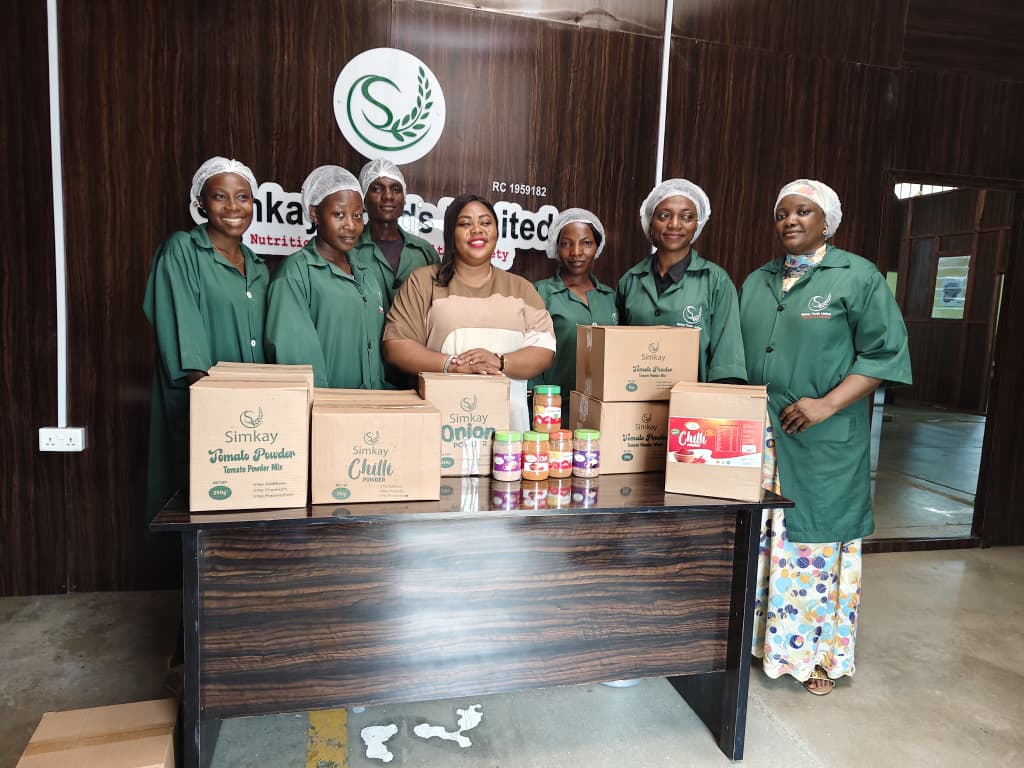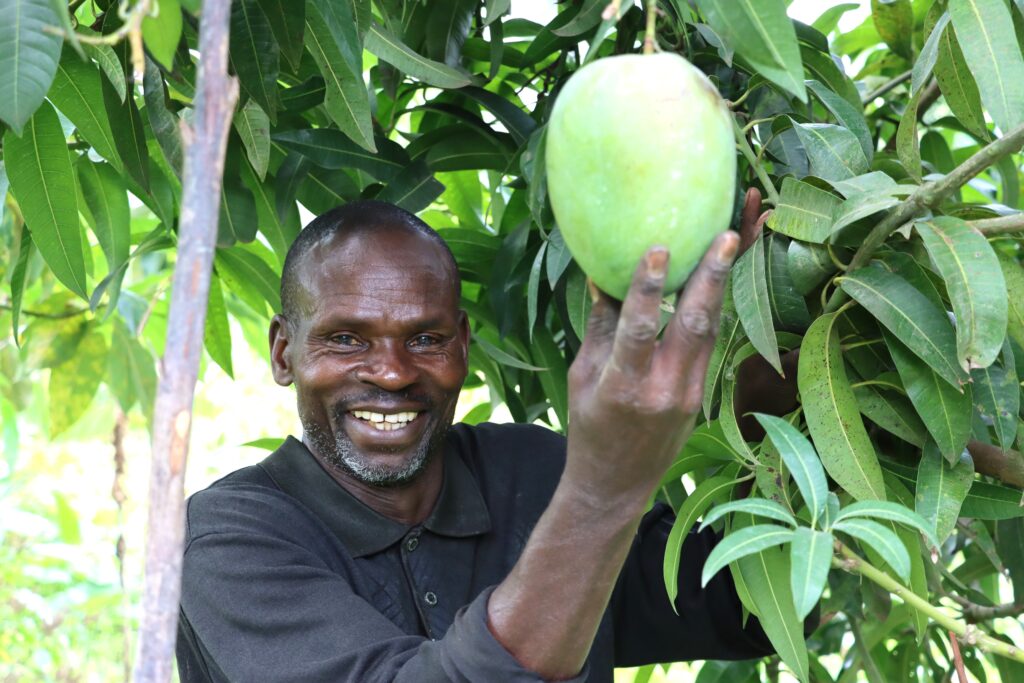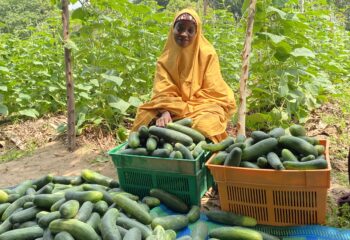
Nigeria has one of the largest youth populations in the world, yet their unemployment and underemployment remain persistent challenges. This reality continues to undermine progress toward several key United Nations Sustainable Development Goals (SDGs), including SDG 1: No Poverty, SDG 2: Zero Hunger, SDG 8: Decent Work and Economic Growth, and SDG: 12 Responsible Consumption and Production.
One business helping to change that narrative is Simkay Foods Ltd., a growing agribusiness based in Kaduna State that specializes in vegetable processing and value addition. In 2023, Simkay Foods was equipped to expand its operations through strategic support from the HortiNigeria program.
“Knowing that people’s jobs depend on my ability to keep this business running is what keeps me going. It pushes me to grow.”
Rejoice Usim, founder and Chief Executive Officer of Simkay Foods.
After Simkay Foods received a grant from the African Development Bank (AfDB) to acquire solar dryers, an important step in ensuring energy-efficient processing and reduced food waste, HortiNigeria built on the opportunity by facilitating access to the Zaria Fertilizer Complex, which eased infrastructure constraints and enabled structured production.
The company was also supported with received a generator from HortiNigeria, which guarantees a stable power supply and minimizes spoilage during processing.
Most significantly, HortiNigeria provided business-to-business linkages for Simkay Foods to a network of over 100 trained vegetable farmers, establishing a consistent supply of quality tomatoes, onions, and peppers for processing.
Simkay is now pioneering the use of UV solar dryers that will be installed directly in farming communities. These dryers reduce logistics costs, create jobs in rural areas, and minimize post-harvest losses.
Over the past 12 months alone, they have enabled the company to offtake over 250 tons of vegetables that would have otherwise gone to waste, directly supporting farmers while strengthening the value chain.
These interventions helped Simkay Foods bridge the gap between smallholder production and formal markets, transforming what would have been waste into profits. Farmers now produce with confidence, recognizing their harvests will not go to waste and that they will be paid fairly for their effort.
“I’m using the best practices I’ve learned to help me get the highest yield possible so I can supply Simkay and earn more income. I’m happy to have a reliable market nearby that I know will buy from me,” remarked Abdulkadir Tahir, a vegetable farmer from Soba.
Today, Simkay Foods employs 25 young Nigerians, including women, in many roles, from sorting and processing to packaging and logistics. These jobs provide decent livelihoods and offer training, dignity, and financial stability.
“Knowing that people’s jobs depend on my ability to keep this business running is what keeps me going,” said Rejoice Usim, founder and Chief Executive Officer of Simkay Foods. “It pushes me to grow.”
The story of Simkay Foods shows that value addition does more than reduce post-harvest losses – it multiplies impact by creating employment, supporting smallholder incomes, and strengthening rural economies.
With continued investment and collaboration, businesses such as Simkay Foods can drive a new era of youth-led, value-driven transformation in Nigeria’s horticulture sector, advancing national development while contributing meaningfully to the SDGs.
HortiNigeria (2021-2025) is implemented through a consortium led by IFDC that includes East-West Seed Knowledge Transfer (EWS-KT), Wageningen University and Research (WUR), and KIT Royal Tropical Institute and is funded by the Embassy of the Kingdom of the Netherlands in Nigeria.





